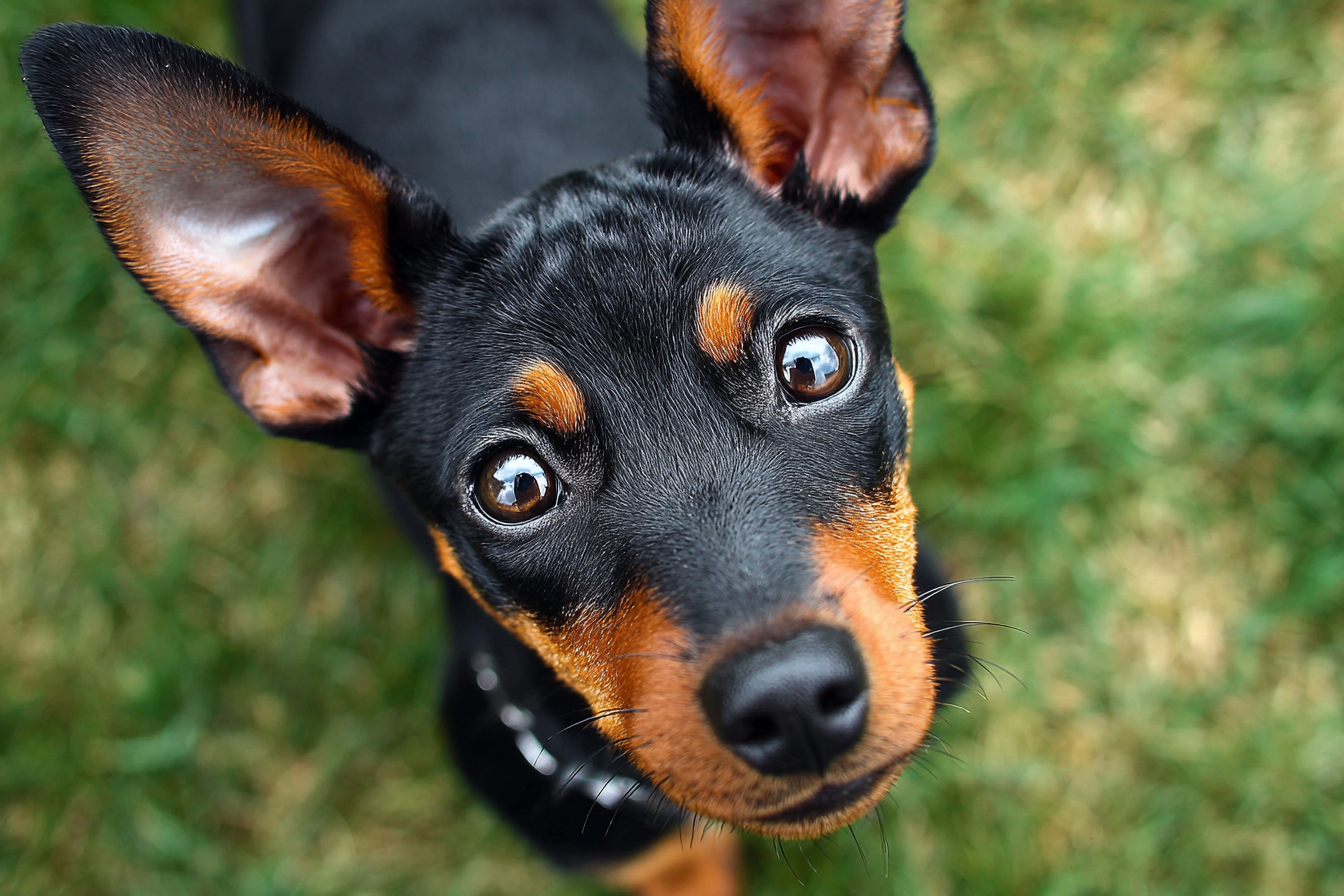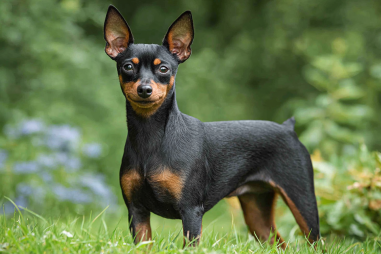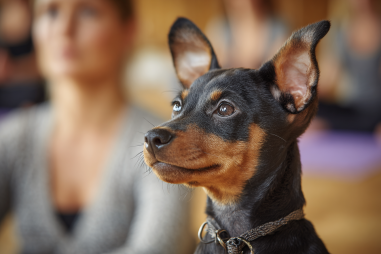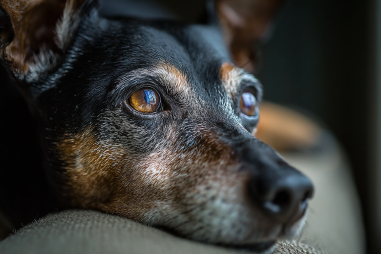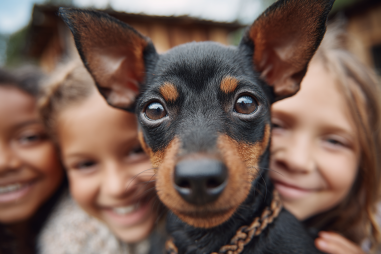The Miniature Pinscher, often affectionately called the “Min Pin,” is a small but mighty breed with a personality that belies its size. Known for their boldness and lively spirit, these dogs have a temperament and behavior pattern that make them unique among small breeds. Understanding these traits helps owners foster a stronger bond and provide the best care for their furry companions. In this article, we’ll dive into the typical personality traits of Miniature Pinschers, their interactions with families and other pets, common behavior challenges, and practical tips to encourage positive behaviors. Whether you’re a current owner or considering welcoming a Min Pin into your home, gaining insight into their nature will be invaluable.
Personality Traits of Miniature Pinschers
Miniature Pinschers are known for their vivacious and assertive personalities. Often described as “big dogs in a small body,” their energy level is high, making them playful and entertaining companions. They are curious, intelligent, and confident, which sometimes can come off as stubbornness. This lively demeanor is paired with a strong sense of independence, making them natural explorers and escape artists when not properly supervised.
Despite their spirited nature, Miniature Pinschers are also affectionate and loyal to their families. They enjoy being the center of attention and thrive in environments where they receive plenty of interaction and mental stimulation. Their alertness and keen senses make them excellent watchdogs; they are quick to alert their owners to any unusual activity around the home.
However, due to their boldness, this breed requires a confident owner who can provide consistent leadership and boundaries. Positive reinforcement training works best with them because harsh or inconsistent methods can lead to fearfulness or behavioral issues.
Interaction with Families and Children
The Miniature Pinscher can be a great family dog when socialized properly from a young age. They generally bond closely with their human family members and enjoy participating in family activities. Their affectionate nature means they often seek out cuddles and companionship, despite their independent streak.
When it comes to children, Miniature Pinschers can do well with older kids who understand how to respect and handle dogs appropriately. Their small size means they are fragile and can be easily injured by rough play. Young children may inadvertently hurt them or trigger defensive snapping if the dog feels threatened or overwhelmed.
Therefore, supervision is essential when Miniature Pinschers are around young children. Teaching kids how to approach and play gently with the dog can help build a positive and safe relationship. Miniature Pinschers thrive in families that balance affection with structure and consistent rules.
Relationship with Other Pets
Miniature Pinschers are often confident and assertive around other animals. They typically get along with pets they have been raised with or introduced to carefully and gradually. However, due to their strong prey drive, they may chase smaller animals like rodents, rabbits, or even small birds.
Their bold temperament means they may try to assert dominance over other dogs, especially dogs of similar or smaller size. Early socialization is crucial for helping Miniature Pinschers learn appropriate behavior towards other pets. Positive experiences with other animals can lead to harmonious relationships.
If introducing a Miniature Pinscher to new pets, keep initial interactions supervised and use positive reinforcement to reward calm, friendly behavior. Avoid situations that could provoke fear or aggression, such as forced close encounters with unfamiliar dogs.
Common Behavior Challenges
While Miniature Pinschers are delightful companions, they can exhibit some behavior challenges that owners should be aware of:
- Barking: Min Pins are naturally vocal and make excellent watchdogs. However, this tendency can lead to excessive barking if not managed properly. They may bark at strangers, noises, or when they are bored.
- Escape Behavior: Their curiosity and agility make them escape artists. They may try to jump fences, dig, or squeeze through small openings to explore. This requires secure fencing and supervised outdoor time.
- Stubbornness: Their independent nature sometimes leads to challenges during training as they can be willful. Consistent, patient, and positive training methods are essential.
- Separation Anxiety: Miniature Pinschers form strong bonds with their owners and may develop anxiety when left alone for long periods, leading to destructive behaviors or excessive vocalization.
Tips to Nurture Positive Behavior
To help raise a happy and well-behaved Miniature Pinscher, consider the following tips:
- Consistent Training: Start training early with a focus on positive reinforcement, such as treats, praise, and play. Establish clear rules and routines to help your dog understand expectations.
- Socialization: Expose your Min Pin to different people, animals, environments, and experiences from a young age. This helps reduce fear and aggressive tendencies later in life.
- Physical and Mental Exercise: These energetic dogs need daily walks, playtime, and mental stimulation through toys, puzzles, or training sessions to prevent boredom and destructive behavior.
- Secure Environment: Ensure your home and yard are safe and escape-proof. A fenced yard with no gaps is ideal alongside supervision when outside.
- Manage Barking: Teach the “quiet” command and reward calm behavior. Avoid reinforcing barking by responding emotionally.
- Calm Interaction with Children and Pets: Guide children on respectful play and supervise all interactions to promote safety and happy relationships.
When to Seek Professional Help
While many Miniature Pinscher behavior issues can be managed with proper training and care, sometimes professional guidance is necessary. Consider consulting a professional dog trainer or behaviorist if you notice:
- Severe aggression towards people or other animals
- Persistent anxiety or destructive behaviors despite training
- Difficulty managing excessive barking
- Destructive escape attempts that pose a safety risk
A professional can provide tailored behavior modification plans and training techniques to address specific challenges and help improve the relationship between you and your dog.
Understanding the unique temperament and behavior patterns of the Miniature Pinscher is key to raising a happy and well-adjusted companion. Their boldness, intelligence, and affectionate nature make them wonderful pets for those prepared to meet their energetic and independent spirit with love, leadership, and care.

